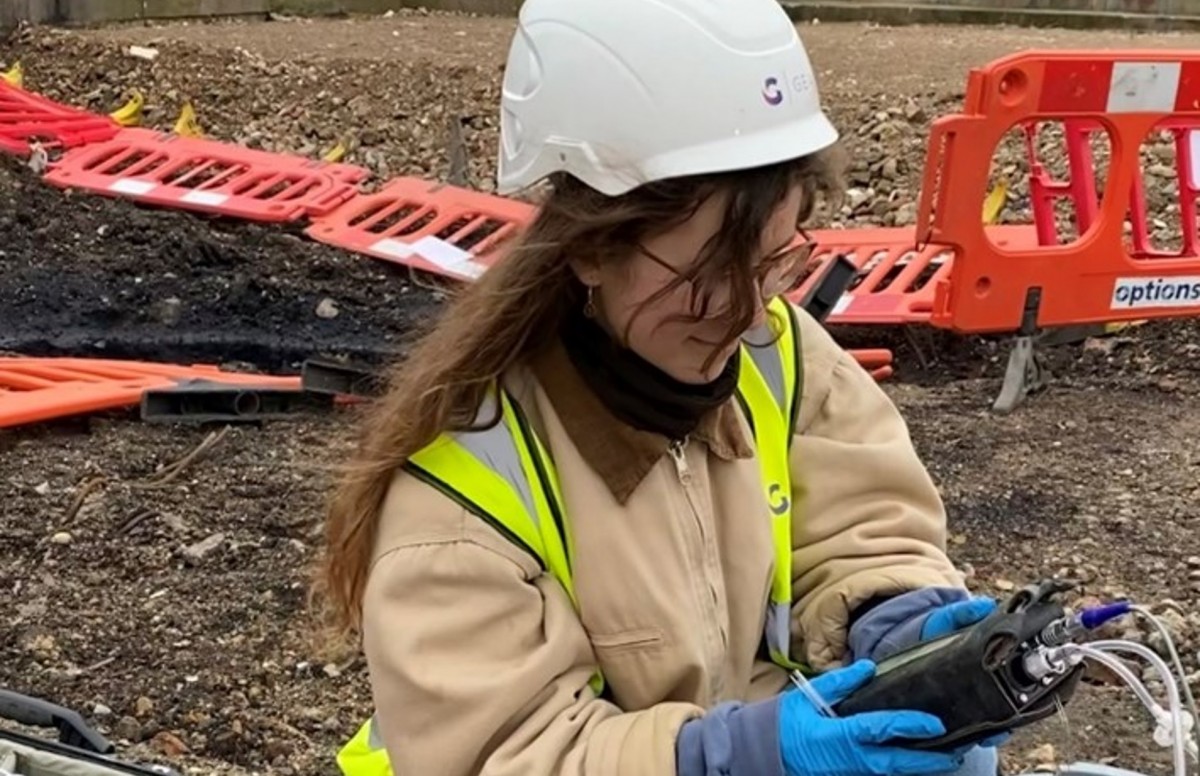The smart Trick of Geotheta That Nobody is Discussing
The smart Trick of Geotheta That Nobody is Discussing
Blog Article
Unknown Facts About Geotheta
Table of ContentsGeotheta - The FactsGeotheta Can Be Fun For AnyoneHow Geotheta can Save You Time, Stress, and Money.Geotheta for BeginnersGeotheta for Dummies

They conduct site investigations, collect samples, perform lab examinations, and evaluate data to review the viability of the ground for building jobs - Geo Tech Engineering. Based upon their searchings for, geotechnical designers give recommendations for foundation design, slope stability, retaining structures, and reduction of geotechnical dangers. They collaborate with various other professionals, such as designers, structural designers, and building and construction teams, to make sure that geotechnical factors to consider are incorporated right into the total task design and implementation
By analyzing the behavior and homes of dirt and rock, they can recognize prospective geotechnical risks such as landslides, soil negotiation, or slope instability. Their proficiency helps stop failures or mishaps that could endanger lives and property. Here are some in-depth duties and obligations of a geotechnical designer: Website Investigation: Geotechnical engineers conduct site examinations to gather data on subsurface problems.
They interpret the information to recognize the buildings and actions of the soil and rock, including their toughness, permeability, compaction attributes, and groundwater conditions. Geotechnical Analysis and Layout: Geotechnical designers assess the information collected throughout site examinations to analyze the security and viability of the website for construction tasks. They perform geotechnical calculations and modeling to evaluate variables such as birthing ability, settlement, slope stability, side earth pressures, and groundwater flow.
Excitement About Geotheta
Foundation Layout: Geotechnical designers play an important role in making foundations that can safely sustain the designated structure. They assess the dirt problems and load requirements to establish the suitable structure kind, such as shallow structures (e.g., grounds), deep foundations (e.g (https://geotheta.jimdosite.com/)., stacks), or specialized methods like soil enhancement. They think about elements such as settlement limitations, bearing capacity, and soil-structure communication to develop ideal structure layouts
They review construction strategies, screen site tasks, and conduct field evaluations to verify that the design recommendations are complied with. If unexpected geotechnical concerns develop, they evaluate the scenario and supply referrals for removal or changes to the layout. Risk Evaluation and Mitigation: Geotechnical engineers analyze geotechnical hazards and dangers related to the job site, such as landslides, liquefaction, or soil erosion.

Partnership and Interaction: Geotechnical engineers work closely with various other professionals associated with a job, such as designers, structural designers, and construction groups. Efficient interaction and collaboration are vital to incorporate geotechnical factors to consider into the total task design and building and construction procedure. Geotechnical designers offer technological experience, answer questions, and make certain that geotechnical needs are met.
The Of Geotheta
Below are some kinds of geotechnical designers: Foundation Engineer: Structure designers concentrate on designing and assessing foundations for frameworks. They analyze the soil conditions, load requirements, and website attributes to determine the most suitable foundation kind and design, such as shallow foundations, deep structures, or specialized strategies like heap structures.
They examine the variables influencing slope security, such as dirt buildings, groundwater conditions, and slope geometry, and develop techniques to stop slope failures and mitigate threats. Quake Designer: Quake engineers focus on analyzing and developing structures to stand up to seismic forces. They analyze the seismic threat of a site, assess dirt liquefaction potential, and create seismic style standards to make certain the safety and security and strength of frameworks throughout earthquakes.
They carry out area screening, collect samples, and evaluate the gathered data to characterize the dirt buildings, geologic developments, and groundwater problems at a website. Geotechnical Instrumentation Engineer: Geotechnical instrumentation engineers concentrate on monitoring and determining the habits of soil, rock, and structures. They mount and maintain instrumentation systems that keep an eye on aspects such as soil settlement, groundwater degrees, slope activities, and structural variations to examine performance and give very early warnings of prospective concerns.
See This Report about Geotheta
They conduct examinations such as triaxial examinations, consolidation tests, straight shear examinations, and permeability tests to collect data for geotechnical evaluation and layout. Geosynthetics Engineer: Geosynthetics engineers focus on the style and application of geosynthetic products, such as geotextiles, geogrids, and geomembranes. They make use of these materials to improve soil stability, enhance slopes, supply drainage remedies, and control disintegration.
They tend to be investigatory people, which suggests they're intellectual, reflective, and inquisitive. They are curious, systematic, reasonable, logical, and sensible. Some of them are also social, suggesting they're kind, charitable, participating, person, caring, valuable, compassionate, sensible, and pleasant. Does this sound like you? Take our totally free occupation examination to locate out if geotechnical designer is just one of your leading career matches.
In the workplace atmosphere, geotechnical designers utilize specialized software devices to carry out computations, create styles, and evaluate data. They prepare reports, evaluation job specs, interact with customers and team participants, and coordinate task activities. The office setting provides a favorable atmosphere for study, evaluation, and cooperation with various other experts involved in the task.
Geotheta for Dummies
They frequently check out task websites to perform site investigations, analyze geotechnical problems, and gather data for analysis. These visits include taking a trip to different locations, in some cases in remote or tough terrains. Geotechnical designers may execute soil tasting, conduct tests, and display construction activities to guarantee that the geotechnical elements of the task are being carried out correctly.
Geotechnical designers likewise work in specialized geotechnical research laboratories. Geotechnical laboratory designers function thoroughly in these atmospheres, taking care of screening devices, operating instruments, and videotaping information.
Report this page